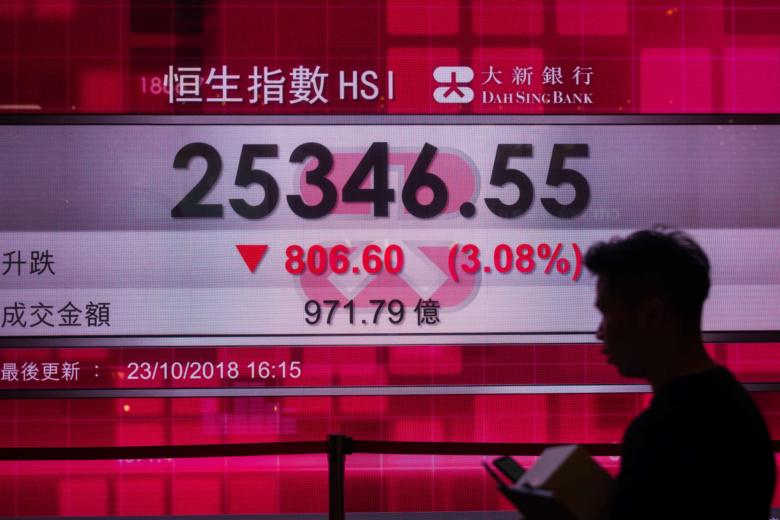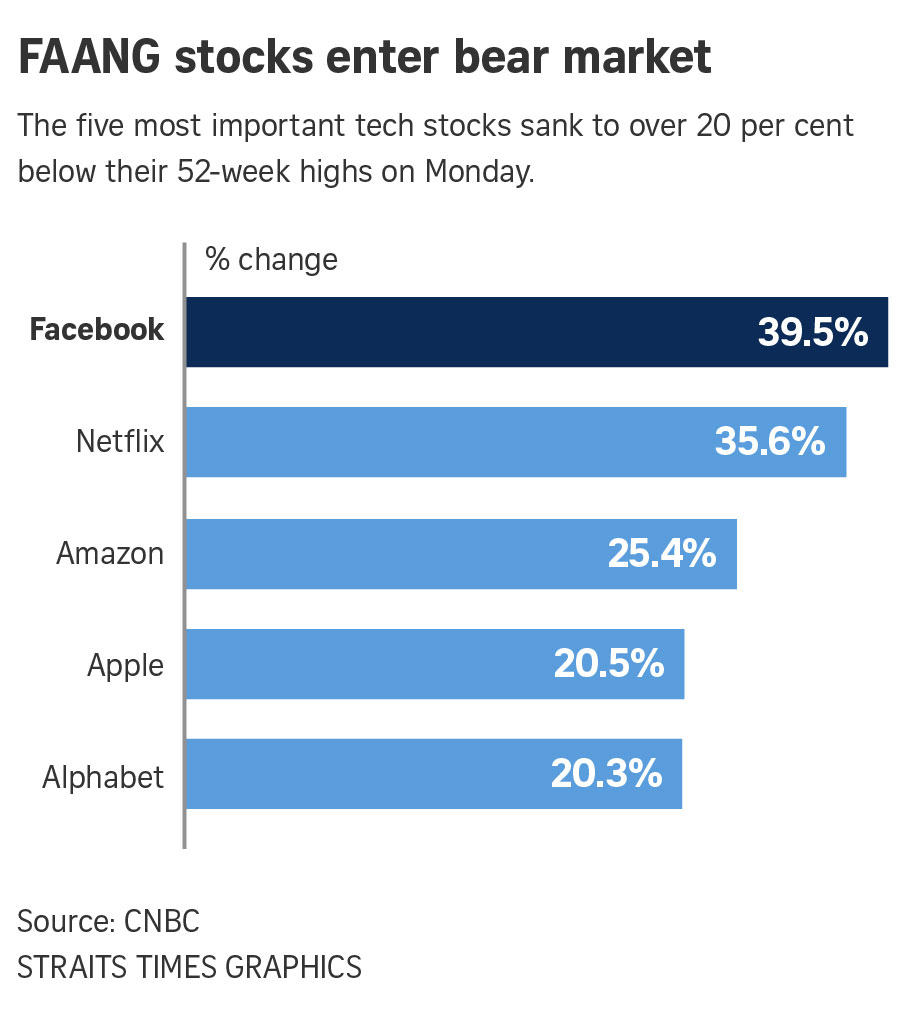Stock slump extends to Asia after US tech sinks; STI down 1%
Sign up now: Get ST's newsletters delivered to your inbox

A man walks past a stocks display board that shows a drop in the Hang Seng Index in Hong Kong, on Oct 23, 2018.
PHOTO: AFP
SYDNEY (BLOOMBERG) - Stocks in Asia slid on Tuesday (Nov 20) after weakness in some of the biggest technology companies sent US stocks tumbling, adding to pessimism about a breakthrough in trade tensions.
Equities fell from Tokyo to Sydney, though less than US benchmarks even as S&P 500 Index futures extended losses. Earlier, US software developers and semiconductor manufacturers led the US gauge lower Monday amid a myriad of concerns swirling around the tech sector. Japanese automakers were under pressure with Nissan Motor tumbling after the arrest on misconduct allegations of the carmaker's chairman, Carlos Ghosn. The US dollar and Treasuries were little changed.
Japan's Topix index fell 0.6 per cent as of 11:20am in Tokyo. Australia's S&P/ASX 200 Index dropped 0.9 per cent while South Korea's Kospi index lost 0.7 per cent. Hong Kong's Hang Seng Index declined 1.5 per cent.
Singapore's Straits Times Index was down 1.03 per cent to 3,033.38.
S&P 500 futures fell 0.3 per cent.
In the overnight US session, the Nasdaq 100 Index plunged more than 3 per cent to the lowest since April, while the S&P 500 sank 1.7 per cent. Apple slumped on signs of slowing demand for iPhones, while Facebook's public image continued to weigh on its share price. Chipmaker Nvidia Corp plunged almost 28 per cent in two days after disappointing earnings, sending shock waves through chipmakers.
Investors are reassessing their expectations after several weeks of volatility spurred by fears of an escalation of the trade conflict and a slowing global economy. Ray Dalio, founder of Bridgewater Associates, the world's largest hedge fund firm, said that investors should expect low returns for a long time after years of low interest rates and quantitative easing have squeezed most of the returns out of assets in the US Meanwhile, optimism that relations between the US and China would improve at Group-of-20 meetings starting next week, dissipated.

"A breakthrough is really about slowing down the pace of tariffs or potentially not allowing the US$200 billion to move at year end up to a 25 per cent tariff from a 10 per cent tariff," Darrell Cronk, president at Wells Fargo Investment Institute, said on Bloomberg TV. "Just an agreement to restart discussions and negotiations in the next year the markets would perceive as strong, positive and good for risk assets."
Elsewhere, the pound stabilized as UK Prime Minister Theresa May appealed to business leaders to help deliver her Brexit deal, and Gibraltar emerged as a fresh sticking point. Bitcoin fell below US$5,000 for the first time since October 2017. Crude rose past US$57 a barrel.
The Australian dollar was little changed and 10-year bond yields climbed as the central bank reaffirmed the next move in interest rates "was more likely to be an increase," though added that there was "no strong case" for a near-term policy adjustment in the minutes of November policy meeting.


